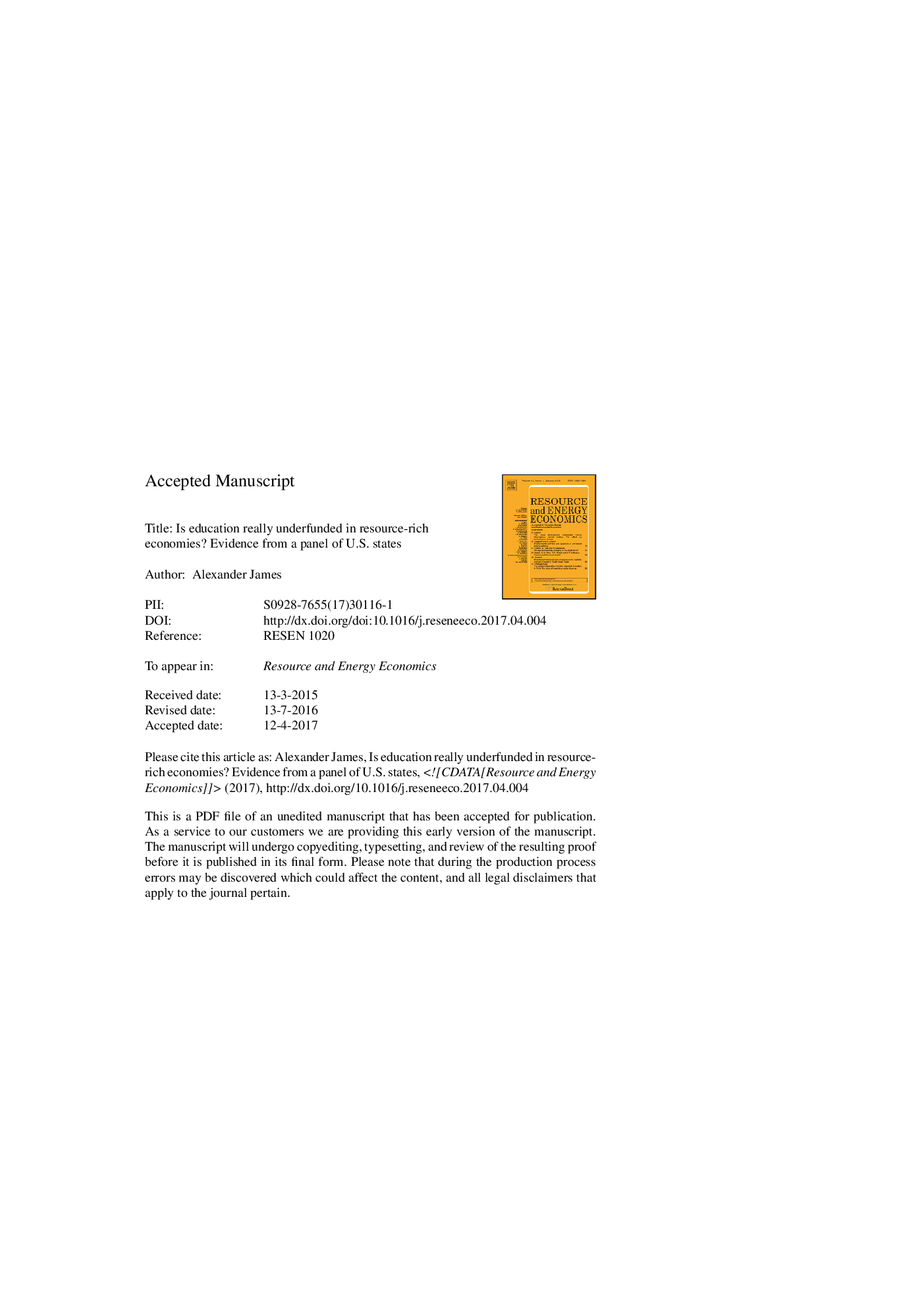| Article ID | Journal | Published Year | Pages | File Type |
|---|---|---|---|---|
| 5104089 | Resource and Energy Economics | 2017 | 32 Pages |
Abstract
Existing development literature has argued that natural-resource endowments “curse” economic prosperity by reducing expenditures on education. According to this theory, public and private agents lack sufficient foresight to make optimal economic decisions and become poor as a result. Using a panel of U.S. state-level data, this paper offers evidence to the contrary. Public spending on education in resource-rich states greatly exceeds that in resource-scarce ones, and private education services are imperfectly crowded out as a result. Analyzing a broader set of public education outcomes reveals that relative teacher salaries, public enrollment rates, and teacher-student ratios tend to move pro-cyclically with resource booms and busts. Weaker evidence is provided that graduation rates fall in response to resource booms, perhaps reflecting a rise in the opportunity cost of going to school for working-age students.
Related Topics
Physical Sciences and Engineering
Energy
Energy (General)
Authors
Alexander James,
